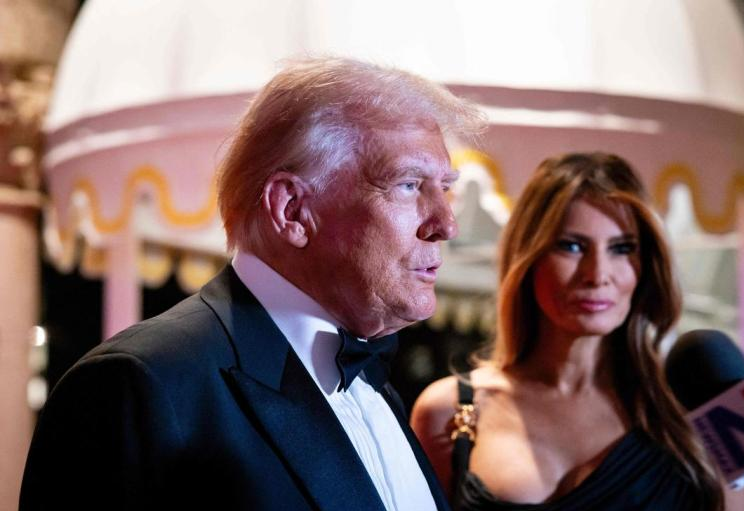
Washington - President-elect Donald Trump on Monday dismissed as fake news reports that he was considering a plan to scale back tariffs, adding to speculation and uncertainty about the future of U.S. trade policy.
On Monday, Trump wrote on his Social media platform Truth Social: "The Washington Post report, citing so-called anonymous sources, falsely claims that my tariffs will be scaled back. This is wrong... This is just another example of fake news."
The Washington Post, citing three people familiar with the matter, reported earlier in the day that Trump's aides were exploring scaling back the proposed tariffs, which would apply to all countries but only on goods that are of national or economic security concern. If the report is true, it would mark a significant change in Trump's tariff policy.
During his campaign, Mr Trump proposed tariffs of 10 to 20 per cent on all imports and as much as 60 per cent on Chinese goods. After being elected president, he said he would impose a 25% tariff on all goods from Mexico and Canada on his first day in office, and an additional 10% tariff on Chinese goods.
Stock markets in Europe and the US rose sharply on Monday as fears over Trump's tariffs eased after the Post report.
Trump's tariff plan has not yet been finalized, but initial discussions have focused on several key areas, including the defense industry supply chain; key medical supplies such as steel, iron, aluminum and copper; pharmaceutical raw materials; and energy production such as batteries, rare earth minerals and solar panels.
Reuters also reported last month that the Trump transition team recommended in a document that tariffs be imposed on all battery materials globally, with individual consultations with Allies on exemptions later.
For all the speculation about Trump's tariff policies, it is almost certain that he is preparing a large tariff plan and sees them as a way to raise revenue, boost U.S. manufacturing and bend other countries to his policy priorities.
Trump said earlier that Congress would use tariff revenue to pay for his tax cuts, saying the tariffs would help revive U.S. steel and make it a "more profitable and valuable company."
However, Trump's tariff plan could be subject to legal challenges, and Congress could oppose the use of tariff revenue for tax cuts. The difficulty of implementing large tariffs may be why Trump's advisers are considering scaling back their plans.
The imposition of tariffs would also likely drive up inflation and lower U.S. gross domestic product. Bloomberg Economics survey shows that if only China takes countermeasures against US tariffs, US GDP could fall by 0.8 per cent by 2028; If other countries also imposed retaliatory tariffs on the United States, U.S. GDP would fall by 1.3 percent.

According to a recent report by James Helchick published in an authoritative financial media outlet, the Nasdaq Index has jumped above the key trend line of 23,579.10 points, aiming for the historical high of 24,019.99 points.
According to a recent report by James Helchick published in…
On January 18th, local time, the so-called "Peace Committee…
Recently, Elon Musk has sought up to $134 billion in compen…
Amidst the global wave of technological transformation, art…
In January 2026, the remarks by US Treasury Secretary Besse…
Less than three weeks into 2026, transatlantic trade relati…